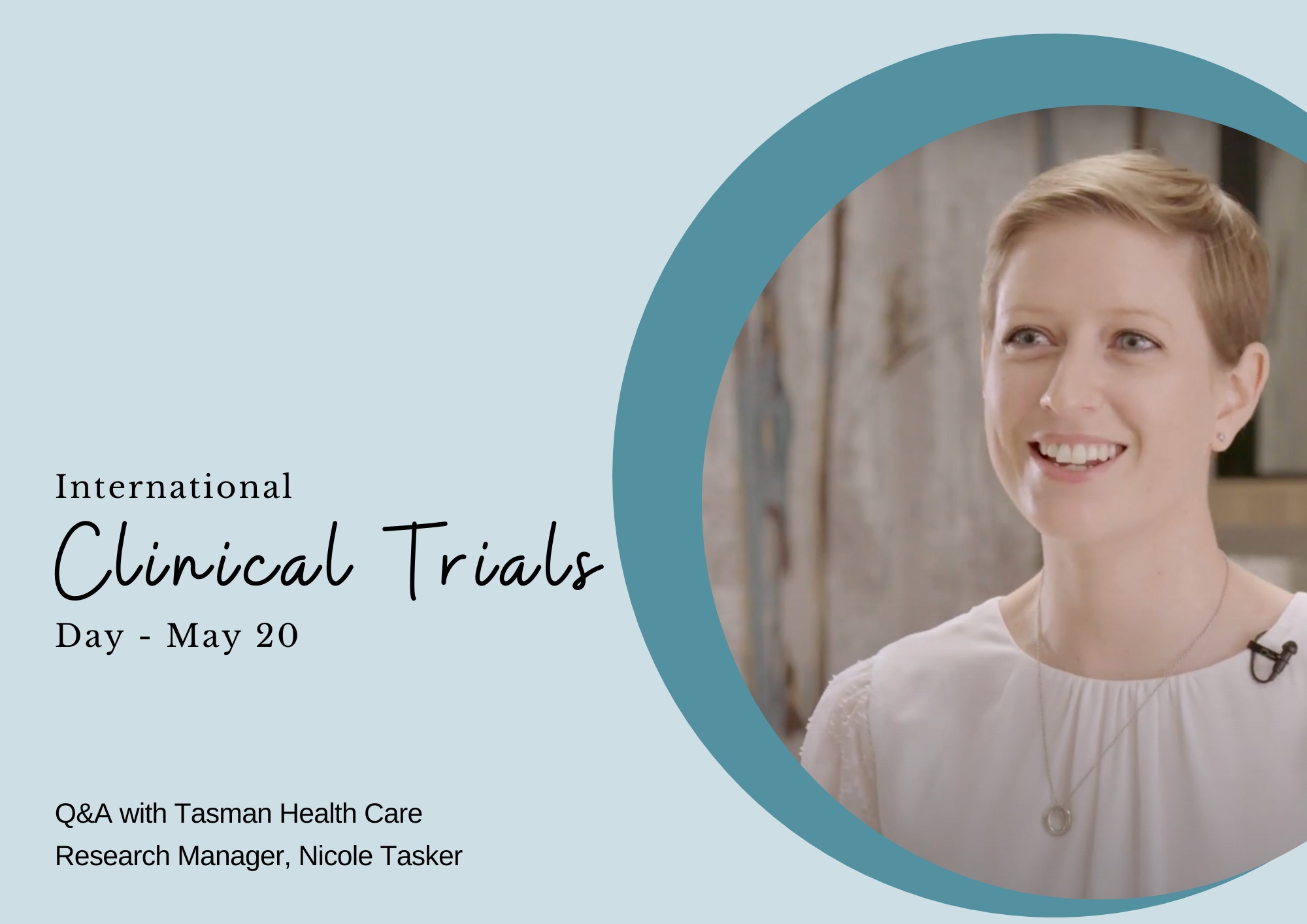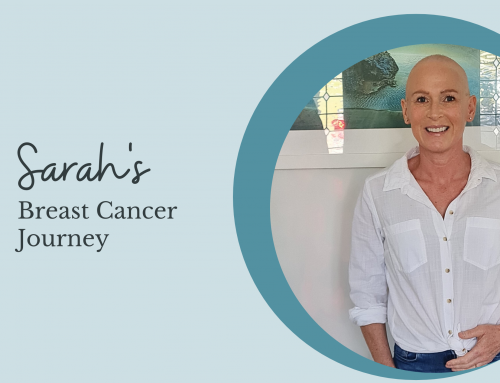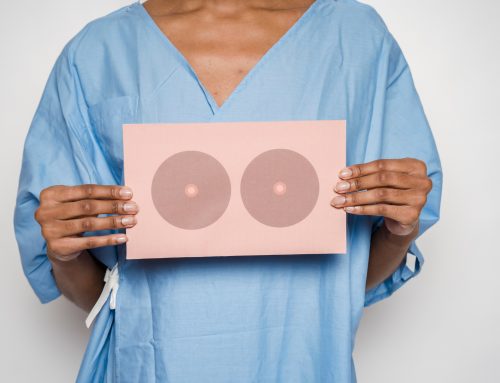On International Clinical Trials Day, May 20, we are thrilled to highlight the achievements and contributions of one of our own staff members, Nicole Tasker. Nicole is an accomplished research professional with many years of experience in the field and leads our clinical trials team here at Tasman Health care. Her expertise and dedication to advancing medical research have made her an invaluable member of our team.
In honor of International Clinical Trials Day, we had the privilege of interviewing Nicole to learn more about her experiences and insights into the world of clinical trials. Join us in celebrating Nicole’s accomplishments and gaining a deeper understanding of the importance of clinical trials in advancing healthcare.
What inspired you to pursue a career in medical research?
I was incredibly fortunate to be inspired to pursue clinical research by a patient publicly sharing their experience on a clinical trial. Clinical research satisfies my interest in scientific exploration and a desire to contribute to medical knowledge, whilst also working closely with patients and their families.
My professional qualifications include a Doctorate Degree in Biochemistry, First Class Honours in Medical Chemistry, Masters of Pharmacy and a Bachelor of Pharmaceutical Science. During my PhD at the Walter and Eliza Hall Institute of Medical Research in Melbourne I was involved in the cancer drug discovery pathway, from identification of drug targets to the chemical synthesis of new drug candidates. Clinical research in Oncology allows me to follow my passion of contributing to the development of new medicinal products, which can give real hope to patients facing the challenging health and life outcomes of cancer.
Pharmacy was a foundational degree underpinning my appreciation of scientific research and pharmaceuticals. I believe the knowledge and skills I have obtained from my roles as a Pharmacist and Scientist have provided me with a unique background, where I can appreciate the clinical utility of bench research to the primary care setting, alongside a familiarity with both the initial and end stages of the drug development pathway. To further develop my clinical research skills, I have been highly motivated to participate in training and networking events, where I have gained valuable knowledge from experienced practitioners and from practical application.
What are the research projects you are currently working on, and what are the implications of your findings?
Immunotherapy is increasingly the focus of oncology clinical trials. Immunotherapy encompasses a number of different treatment strategies aimed to induce and amplify the body’s immune response to disease. The high selectivity of antibodies differentiates targeted immunotherapies from traditional chemotherapies, which, for the most part, exert a cytocidal action through the indiscriminate killing of rapidly dividing cells.
In the field of cancer immunotherapy, there has been growing interest in therapeutic oncolytic viruses. These are viruses that preferentially infect and kill cancer cells. The team is excited to be participating in trials investigating oncolytic viruses.
The portfolio of clinical trials at Tasman Oncology Research is ever-evolving to include new investigational products and cancer types. Our site has a strong reputation for successful recruitment to skin cancer trials, alongside other prevalent cancer types.
What are some of the biggest challenges you face in your work, and how do you overcome them?
Trial start-up is a critical phase and has many opportunities for delay which adversely impact the study timelines. Many times, study timelines are outside of the research site’s control. It is often disappointing if we have willing and able participants, but do not have permission to proceed with consent or participation in the trial. It is critical that every regulatory and ethical review step is followed before the activation of a clinical trial.
On a more personal level, emotional resilience is important when working in oncology. As Clinical Research Coordinators we make ourselves accessible to patients and are invested in their cancer journey. It is motivating to see our patients give their time, energy and cooperation to a clinical trial in order to contribute to medical advancement.
What are some of the ethical considerations that you need to keep in mind when conducting medical research, and how to you navigate these complex issue?
Clinical research must be conducted in a fair, honest, impartial and transparent manner in order to ensure strict adherence to ethical principles. A Code of Ethics provides a framework for conducting clinical trials, with an emphasis on scientific integrity and patient safety. Before any study can be conducted at the site, an Australian Ethics Review Board examines the study, focusing on research aims, research design, patient materials, and data collection.
Informed consent, confidentiality, privacy, and respect are key ethical considerations in research involving humans. A Tasman Medical Oncologist acting as the Principal Investigator on the trial has strict oversight over all trial participants and delegated staff. All volunteers are fully informed of what the trial involves and potential risks before providing their consent.
Another ethical consideration related to clinical trials is the scientific validity of trial outcomes. Every step of the way our data collection is monitored and verified for accuracy by external research associates. All clinical research staff at Tasman Health Care are trained in Good Clinical Practice Principles, an internationally accepted standard for conducting clinical trials.
What advice would you give to people who are interested in pursuing a career in medical research?
Clinical research is an excellent career to get involved in if you want to contribute to medical advancements and breakthroughs. Not only is clinical research a fulfilling career, but it’s also a challenging one. It is a great privilege to be able to help people and is intellectually rewarding. A Clinical Research Coordinator role can lead to a multitude of different career pathways, including Pharmacovigilance, Quality Assurance, Scientific Writing and Commercialisation (plus many more!).
You can pursue a career in clinical research from a foundation in many allied health or science professions. As an aspiring clinical researcher, you will benefit from effective communication and interpersonal skills, strong attention to detail, and an analytical mindset. I often advise science graduates to explore broader job sectors within the pharmaceutical industry, including research translation, data management, and laboratory or trial pharmacy roles. These opportunities will allow you to work in collaboration with clinical researchers at both the research site and the pharmaceutical sponsor.
To make an appointment with one of our Doctors, Genetic Counsellors or team of Allied Health Specialists please contact us (07) 5613 2480 or reception@tasmanhealthcare.com.au.






